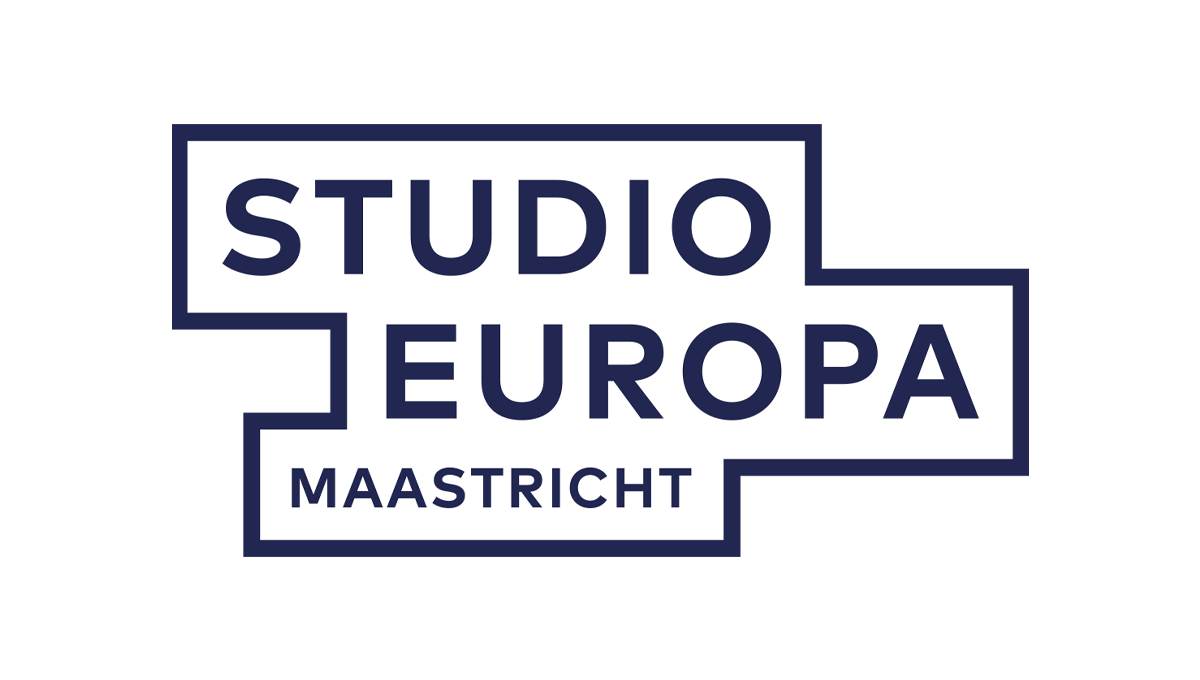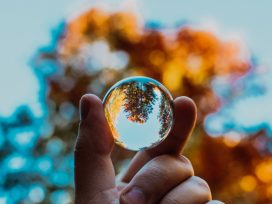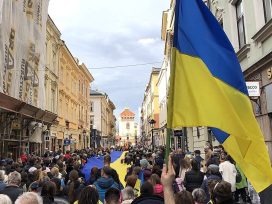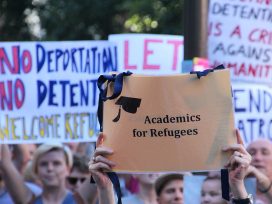A window of opportunity
Our slowed-down, cooled-down, scaled-down lives during the pandemic are evidence that quality of life does not depend on high productivity and frantic consumption. Suddenly, it has become respectable – and realistic – to talk about reforming society and the economy.
For want of a nail, the shoe was lost;
for want of the shoe, the horse was lost;
for want of the horse, the rider was lost;
for want of the rider, the battle was lost;
for want of the battle, the kingdom was lost;
and all from the want of a horseshoe nail.
Traditional proverb of unknown origin
The whole world seemed to shift into a lower gear in the first months of 2020. Smoke ceased to come out of Chinese chimneys; airplanes in the US were grounded or empty; tourist resorts in Mauritius were forced to send home their employees; and on my evening walks through my Oslo neighbourhood, it became rare to meet anyone. Almost from one day to the next, the pandemic became the main if not the only topic, be it on the news, during Zoom meetings or in casual encounters with acquaintances.
It now seeps into and contaminates every human endeavour. At my university, we have discussed how to hold this year’s exams, the pros and cons of online teaching, and solutions to the lack of fieldwork opportunities for postgraduates. Cultural life has migrated to artists’ sitting rooms, where they can perform with no audience in sight, actors are on indefinite furlough, and my son and I feel pangs of abstinence every Saturday afternoon because there is no football to watch.
Unemployment is soaring worldwide, remittances to family members in poorer countries are drying up, agriculture in the global north is struggling for want of foreign labourers, and tourism – which accounts for at least ten per cent of the global economy – has come to a halt. And this is only the beginning of the economic downturn.

Photo by Corey Seeman from Wikimedia Commons
Infection rates will subside, but the virus is unlikely to go away. On the contrary, if earlier pandemics are any measure, it could return with a vengeance. The social life of the planet has become swathed in fear and uncertainty. The message from governments to ‘do as little as possible and stay where you are’ amounts to a perfect negation of the neoliberal creed that has dominated for decades.
The enforced de-acceleration of an inherently destructive neoliberal world contains a paradox and, perhaps, the germs of a new beginning. The global connectedness that sustains the current state of the world is what has led to its present demise. Had travel and trade been slower and less widespread, the virus would have taken longer to move and could have been contained more easily. It would not have brought down the world economy like a stack of dominoes. The new beginning will hopefully take the lessons from this vulnerability as a point of departure, but there is no ready recipe or roadmap for us to follow. We have entered uncharted territory.
Crises
The first of the four Horsemen of The Apocalypse is said to represent pestilence. Plagues and epidemics have shaped and framed history since the agricultural revolution, when diseases began to travel between humans and their domestic animals. The Justinian plague beginning in 541 CE weakened the Eastern Roman Empire and marked the beginning of the Dark Ages in Europe. The Black Death was followed by peasant uprisings and the end of feudalism, germinating the seeds of the Renaissance.
During the conquest of the Americas, diseases which Europeans had developed partial immunity against killed the vast majority of the native populations. And Napoleon Bonaparte, the greatest military leader of his time, suffered two major defeats because of disease. In St Domingue, his army was decimated and rendered useless by yellow fever, leading to the proclamation of independent Haiti in 1804; and his Russian campaign in 1812 was halted by a typhus epidemic.
Our present predicament has much in common with previous pandemics, but it is also unique. The entire planet is now hyperconnected through multiple forms of mobility, from tourism and trade to business and conferences. In a world system of production, trade, consumption and communication that relies on just-in-time deliveries and instant availability, margins are slim. This very connectedness produces peculiar forms of vulnerability, resistance and unexpected consequences.
In this respect, the COVID-19 pandemic displays greater resemblance with the climate crisis than with previous epidemics. It is truly global, it is invisible, it exacerbates inequality, and it is created by globalisation and the growth economy. The pandemic and the climate crises threaten to undermine the very conditions of the ways of life that produced them. They are the by-products of a world economic system which has been remarkably successful in improving people’s lives, while at the same time producing exclusion and suffering.
Neither of the two crises can be solved by individual countries. During past epidemics, cities restricted internal mobility and access by outsiders. Ships were quarantined and the visibly ill were isolated. Similar measures are being carried out now, but a chain is never stronger than its weakest link. If a critical mass fails to comply with the strict norms now imposing themselves globally – test, isolate, distance – the virus will return again and again.
Cooling down
In spite of parallels with the climate crisis and earlier pandemics, COVID-19 is unprecedented. The speed of its spread, the extent of its economic consequences and impact on everyday life, the uncertainties about its severity and growth, and about the efficiency of measures to prevent contamination, all create a new global situation. A world that is committed to growth, that has witnessed an acceleration of acceleration since the end of the Cold War, has now been forced to slow down and reduce. It is not going to be easy, but it is necessary.
For half a century, activists and climate researchers have pointed out that continued economic growth is impossible, unsustainable and ultimately catastrophic. World trade has quadrupled in a mere forty years. During the same period, the number of tourist arrivals increased sixfold, from 200 million to 1.2 billion a year. In just fifteen years, from 2004 to 2019, the number of plane tickets sold rose from two billion to four-and-a-half billion.
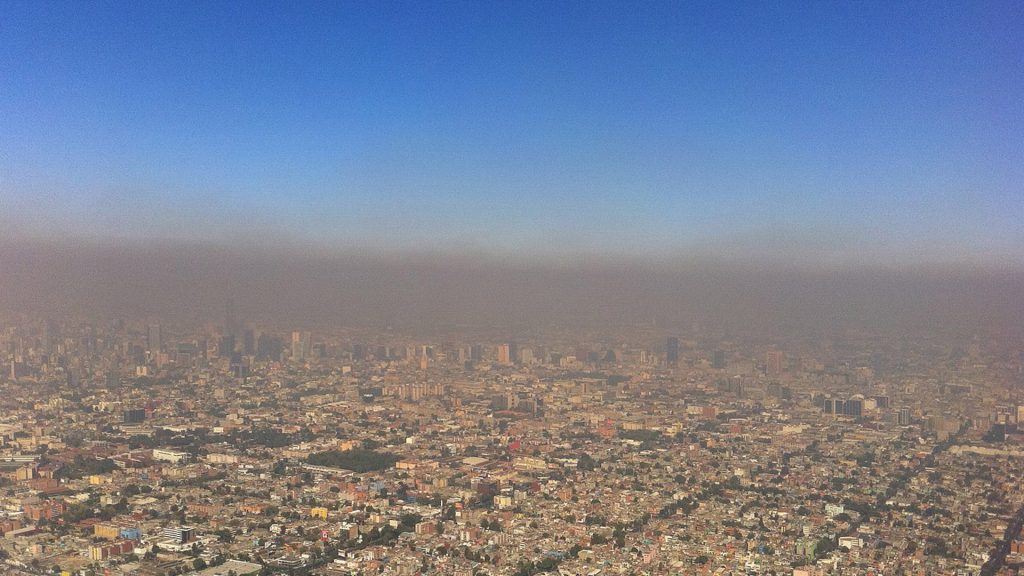
Smog over Mexico City. Photo by Fidel Gonzalez from Wikimedia Commons
In just fifty years, we have killed half the wild animals in the world. By 2020, just four per cent of all mammals are wild. Thirty-six percent are humans, and the remaining sixty percent livestock. At the same time, the habitats of the remaining wild animals are dwindling. Just like humans who have fallen victim to land-grabbing, they have been chased off their land. This brings them into closer contact with humans, creating possibilities for new, devastating viruses.
This litany of planetary and human ailments could be extended endlessly, from the plastic in the ocean and the depletion of non-renewable resources such as phosphorus (crucial for chemical fertilizer), to the global inequalities enabling the wealthy to stay safe in their suburban gardens while condemning the poor to huddle together in dilapidated housing, from Manila to Rio de Janeiro.
Having entered the Anthropocene, planetary ecology is revealing its frailty following massive predatory exploitation by humans. The very causes of the ecological crisis and economic growth are also the causes of the speed and comprehensiveness of the virus pandemic.
It looks like an unsolvable dilemma. At a more pragmatic level, governments are now caught between urgent health considerations and continued economic growth. Millions will be out of work indefinitely. Societies worldwide will probably stop and start in a staccato way for years. Tourism, the main source of income for many, not least in the global south, is unlikely to return in the form we knew it.
The cooling down of the overheated world economy has been abrupt and dramatic and. In the short term, it has led to human suffering on a large scale. Economists estimate that private consumption accounts for two-thirds of the world economy. When you and I, and billions of others, spend more time at home, when cafes and hairdressers close, when hotels are empty and when shopping is restricted, many cogs stop turning. There is nobody to buy discounted clothing from Bangladesh, nobody to tip the Polish waiter at the pub, nobody to enjoy the services of a Filipino cleaner aboard a cruise ship.
Economists speak of the deepest recession of a hundred years. Recovery will inevitably entail change, possibly even more comprehensive than the reforms following the 1930s recession – when even the USA, introduced welfare provisions as part of the New Deal. Moreover, there should be no return to business as usual. After thirty years of neoliberal hegemony, a window of opportunity has unexpectedly been opened, making it perfectly respectable, and realistic, to talk about reforming society.
There is no point in making predictions about what the world will look like when the dust has settled. Our world is the product of our own imaginations, our capabilities and our labour. We humans are not inert victims of our upbringing, our societal circumstances or our genetic heritage, although all three are powerful forces shaping us. There is no historical necessity determining what the effects of the coronavirus on society will be; human futures are shaped by human agency.
Prospects
In some respects, we need to think and act fast, in others more slowly. The first priority should be to ensure that people who have lost their livelihoods can support themselves. If they cannot return to their former jobs, governments may give incentives or create jobs in new sectors. Ecologically sustainable jobs can replace unsustainable ones. Some states may introduce UBI (Universal Basic Income). This is unlikely to amount to the equivalent of a full salary, but even ten percent of average income can make a difference, as experiments with UBI in countries like Namibia have shown.
Governments will be hard up, having spent billions to prevent mass bankruptcies. This could therefore be the right moment for a reform of tax regimes. Taxation on consumption and production, with a focus on climate and ecological sustainability, would stimulate green businesses and reduce the ecological footprint. This may also be the moment to access funds stashed away in tax havens and to claim unpaid taxes from the transnational giants. Some governments will still give priority to saving companies rather than thinking ahead; we are not looking at a straight path, but a tortuous one.
A more radical proposition would be to rethink the economy fundamentally. If the economy has until now served the interests of the few, enabling absurdly rich people to grow even richer, now is the time to create a human economy that satisfies the needs of people instead – the need for a livelihood, for recognition and for social fulfilment.
Discussions about the economy may be extended to interrogate the way we think about work in general. The boundary between paid and unpaid work has long been criticised by feminists. Now and in near future, voluntary work with the elderly, children, refugees and disabled people, and perhaps involving nature preservation and civil activity, could be recognised as work on a par with a standard salaried position. Mechanisms to ensure that these valuable, yet undervalued activities can sustain people materially could be put in place.
For years, there have been intellectuals and politicians who have preferred quality of life to standard of living as a measure of the way society is moving. It is now more credible than it was a few months ago to embrace this idea and pursue it to its logical conclusion. One might even take our slowed-down, cooled-down, scaled-down lives during the pandemic as evidence that quality of life does not depend on high productivity and frantic consumption. Many appreciate engaging more deeply with their immediate surroundings, including their physical neighbourhood and the people they live with.
Many lives may not have really slowed down over the past months. Although we are less mobile, many spend even longer hours in front of screens. But it is clear that overall productivity has declined in nearly every country. Many have had large chunks of unwanted time thrust upon them. There are more gaps in schedules; commuting time is down to zero; and meetings are efficient when there is no small talk, coffee and biscuits. The very absence of non-instrumental activities reminds us of the importance of sociality that serves neither profit nor tangible result.
Since globalisation is the air we breathe, nobody in their right mind can either reject it or affirm it as a whole. Some may be favourable to international trade and continued financial globalisation, but negative to immigrants and foreigners; others may take the opposite stance. Some celebrate the possibility of a cosmopolitan conversation; others believe in strengthening national identities while consuming affordable products from a different continent and holidays under coconut trees.
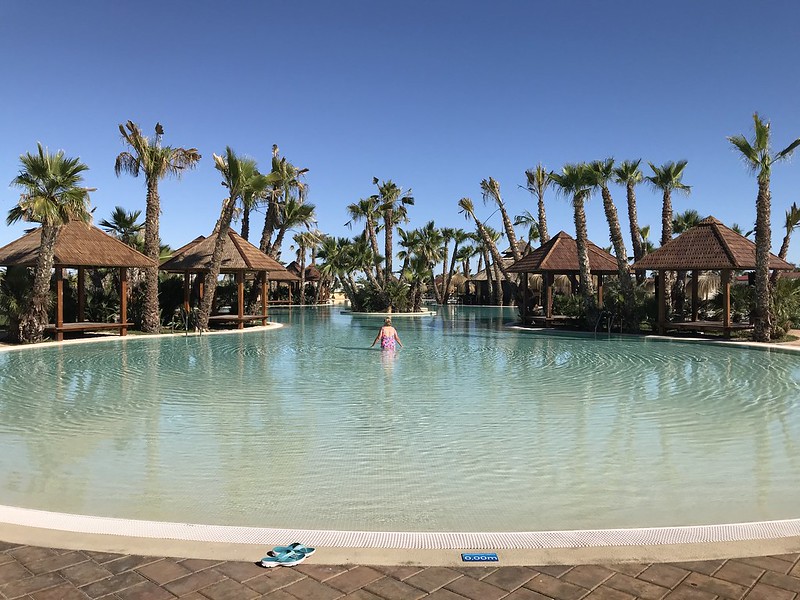
Photo by Marjal Resorts from Wikimedia Commons
The search for scapegoats seems to be endemic to pandemics. The president of the USA has spoken of COVID-19 as ‘the Chinese virus’, just as European Jews were accused of being responsible for past plague epidemics. With the exception of China, every country regards the disease as something that came from the outside. In Norway, the Somali minority is overrepresented among victims, increasing suspicions towards them among the majority. Conversely, in some African countries, there has been growing resentment toward Europeans since the virus arrived.
The pandemic is clearly being used by political forces favouring nationalist withdrawal, more policing of boundaries and less immigration. When other people are the potential bearers of a disease that may kill you and your family, suspicion of other people, particularly strangers, is never far off.
At the same time, the global character of the pandemic shows us that we rely on and are connected to each other in multiple ways. There is close international collaboration among researchers working on a vaccine, and not even North Korea is capable of insulating itself from the outside world. We will likely see more aggressive nationalism, but also more cosmopolitan humanism as a result of this dismal situation.
Another aspect of globalisation concerns its very engine: the ideology of free trade has created the very vulnerabilities that are now visible. In some countries, people are already questioning the wisdom of being dependent on global supply chains for anything from medicines to food and machinery. A possible outcome, then, is a scaling down of production and a reduction in international trade. Seen from the perspective of climate and the environment, this would not be a bad idea.
Chaos and opportunity
But there’s a silver lining. The coronavirus pandemic is a butterfly effect that perfectly illustrates the vulnerabilities of our global economy. Who would have thought, in January 2020, that the flu-like symptoms felt by a shopper in the wet market of Wuhan would, within two months, lead universities in Germany to close their doors? Small causes can have major consequences in this kind of world. The same butterfly effects, channelled through global supply chains and networks of production, distribution and consumption, have been a blessing for millions but a catastrophe for future generations. The situation calls for afterthoughts, humility and new ideas.
Suddenly, the thought of a post-capitalist world is no longer a utopian idea nurtured by wild-eyed activists and intellectuals out of touch with reality. Because millions of people are looking for ways to make a meaningful contribution, it may very well become a viable alternative, a realistic option enabling us to kill several birds with one stone. The virus pandemic can be kept under control in a slower, scaled-down world; a more human economy will enhance social justice; and an ecologically sound way of life may save the planet for ourselves and for future generations. Post-corona society may even prove to be a recipe for a more fulfilling life, with more slow time with loved ones and a deeper engagement with the environment. Perhaps, in ten years’ time, we will look back and ask ourselves why we didn’t make the transition sooner.
The alternatives have been known and available for many years: degrowth economics, alter-globalisation (a movement working to foster global alliances between trade unions), people power (students and indigenous peoples uniting against powerful corporations and WTO ideology); and ecosocialism (a big, sprawling family of green movements active since the 1970s). The current world system is disintegrating quickly, forcing politics and business to take seriously the alternatives proposed by these and other groups.
Many will respond angrily and arrogantly to these ideas. We would do well, however, to remember that history does not have a predetermined direction. At the moment, something important is at stake, and the outcome depends on the choices we make.
Published 12 June 2020
Original in English
First published by De Nederlandse Boekengids (Dutch version); Eurozine (English version)
Contributed by De Nederlandse Boekengids © Thomas Hylland Eriksen / De Nederlandse Boekengids / Eurozine
PDF/PRINTPublished in
In collaboration with
In focal points
Newsletter
Subscribe to know what’s worth thinking about.
Related Articles
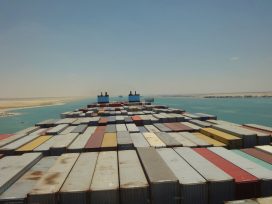
Global capitalism took a surprise hit when the container ship Ever Given ran aground, bringing mass transportation to a standstill. An environmental protest could not have staged a more spectacular blockade: the incident points to a murky history of worker exploitation, intensified fossil fuel consumption and racist quarantining.

Talk of a new Cold War between the US and China emphasizes military capacity and economic prowess. Warrior discourse presents a mono-dimensional situation in which conflict is inevitable. But couldn’t China’s stratospheric rise be better understood and handled by looking at the cultural complexities behind its advances?
